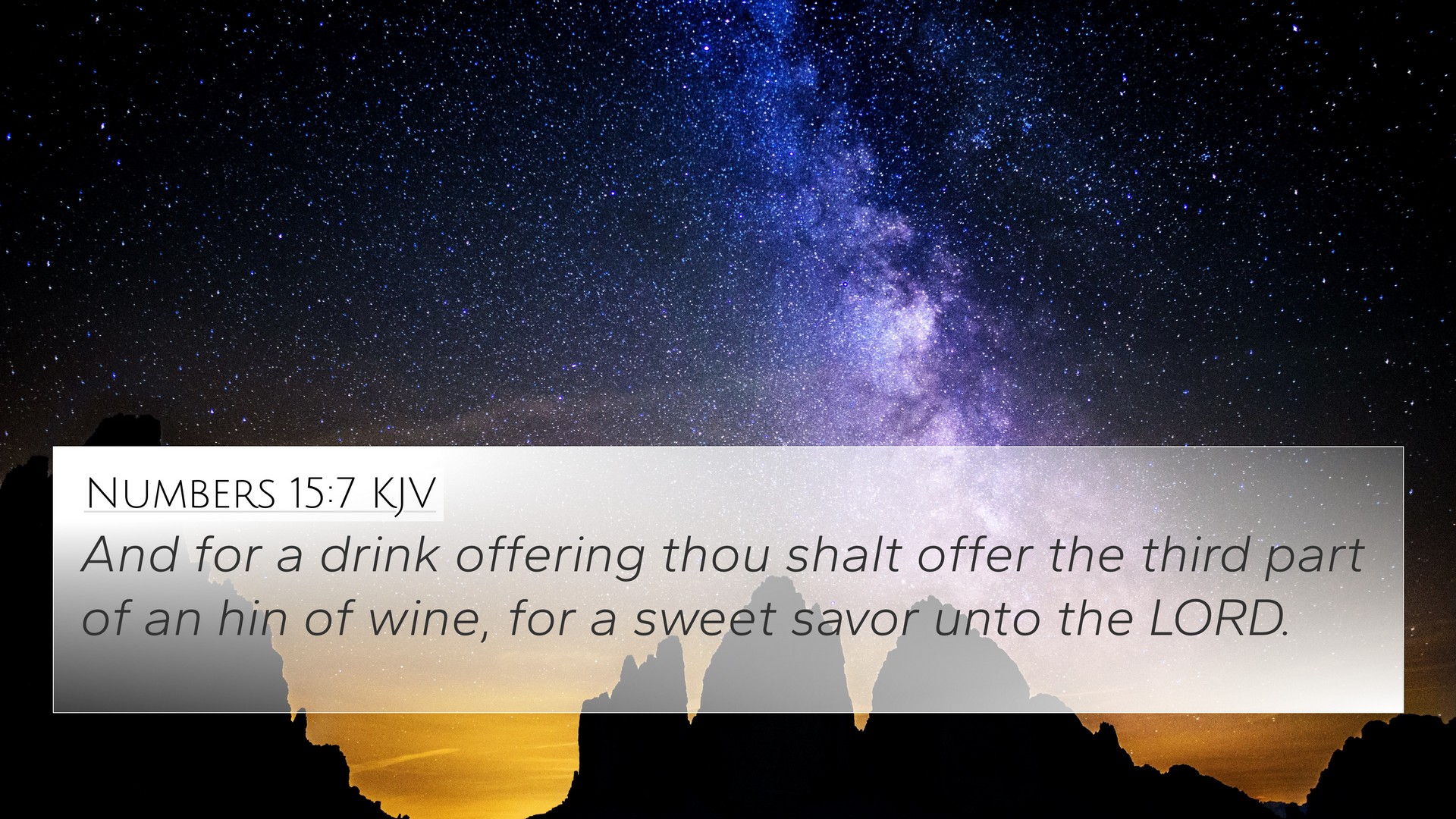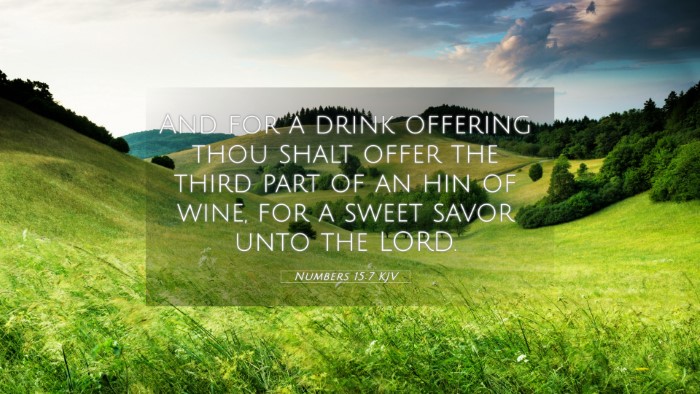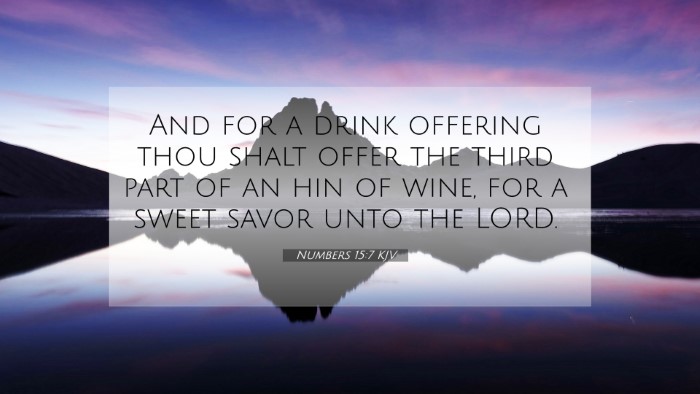Understanding Numbers 15:7
Verse Context: Numbers 15:7 states, "And for a drink offering thou shalt offer half an hin of wine, for a burnt offering, for each lamb; or for a ram, thou shalt offer a drink offering, a third part of a hin of wine, for a sweet savour unto the LORD." This verse is part of the sacrificial laws given to the Israelites, emphasizing the prescribed rituals for worship and the importance of offerings.
Insights from Public Domain Commentaries
This verse has been expounded upon by several biblical scholars, offering rich insights into its theological significance and practical implications.
Matthew Henry's Commentary
Matthew Henry emphasizes the importance of the drink offering as a part of the sacrificial system, signifying joy and gratitude to God. He notes that the drink offering, often represented by wine, serves as an acknowledgment of God’s blessings. The offering is not just an obligation but a reflection of a person's relationship with God, indicating a willingness to give back in gratitude.
Albert Barnes' Commentary
Albert Barnes points out that the specific measurements of the offerings, like the half hin and third hin, were carefully prescribed by God. They reflect the precision and order in divine worship. Barnes also explains that wine as a drink offering symbolizes celebration and festivity in the worship of God, highlighting joy in service.
Adam Clarke's Commentary
Adam Clarke elaborates on the idea that the drink offerings were intimately linked to the burnt offerings, creating a complete act of worship. Clarke notes that these rituals were designed not only for atonement but also to foster a deep sense of community and fellowship with God among the Israelites.
Thematic Connections: Linking Bible Scriptures
Numbers 15:7 suggests various themes that resonate throughout the Bible. Here are cross-references that highlight these connections:
- Exodus 29:40 - Discusses the offerings of wine and shows their connection with temple worship.
- Leviticus 23:13 - Where drink offerings are specified as part of the feast celebrations.
- 1 Corinthians 10:21 - Teaching about the incompatibility of sharing in the Lord's table and that of demons, reflecting the seriousness of sacrificial offerings.
- Hebrews 9:22 - Indicates the necessity of blood for atonement, relating it to the significance of offerings.
- Philippians 4:18 - The offering as a sweet aroma to God, paralleling the sacrificial practices detailed in Numbers.
- Romans 12:1 - Calls for believers to present themselves as living sacrifices, echoing the offering theme.
- Malachi 1:14 - Discusses the dishonoring of offerings, bringing urgency to the worship practices established in the Old Testament.
Inter-Biblical Dialogue
Numbers 15:7 serves as a pivotal point for understanding the theological frameworks concerning offerings throughout Scripture. The idea of offerings evolves from the Old Testament into the New Testament, where Christ's ultimate sacrifice reframes the purpose and understanding of offerings. Here, the emphasis on wine and its significance in worship reflects a broader narrative about how God's people are to approach Him with reverence and joy.
Bible Verse Parallels
By examining thematic Bible verse connections, we can observe how Numbers 15:7 establishes a model for gratitude and devotion that resonates in various parts of the Bible.
Practical Applications: Cross-Referencing Bible Study
Understanding Numbers 15:7 within its larger biblical context enhances our spiritual practice. Here we share tools and methods for effective Bible cross-referencing:
- Utilize a Bible concordance to identify key terms related to offerings.
- Employ a Bible reference guide for understanding the Old Testament's sacrificial system and its New Testament fulfillment.
- Study parallel verses for deeper insights on themes of gratitude and worship.
- Incorporate Bible cross-reference systems into personal study to enrich understanding.
Conclusion
In exploring Numbers 15:7 alongside related scriptures, we recognize that the call to offer unto the Lord extends beyond ritual; it embodies a lifestyle of gratitude and devotion. The cross-references illuminate how foundational practices shape our understanding of worship today. As we engage with these scriptures, let us remember the importance of heart in our offerings to God.


